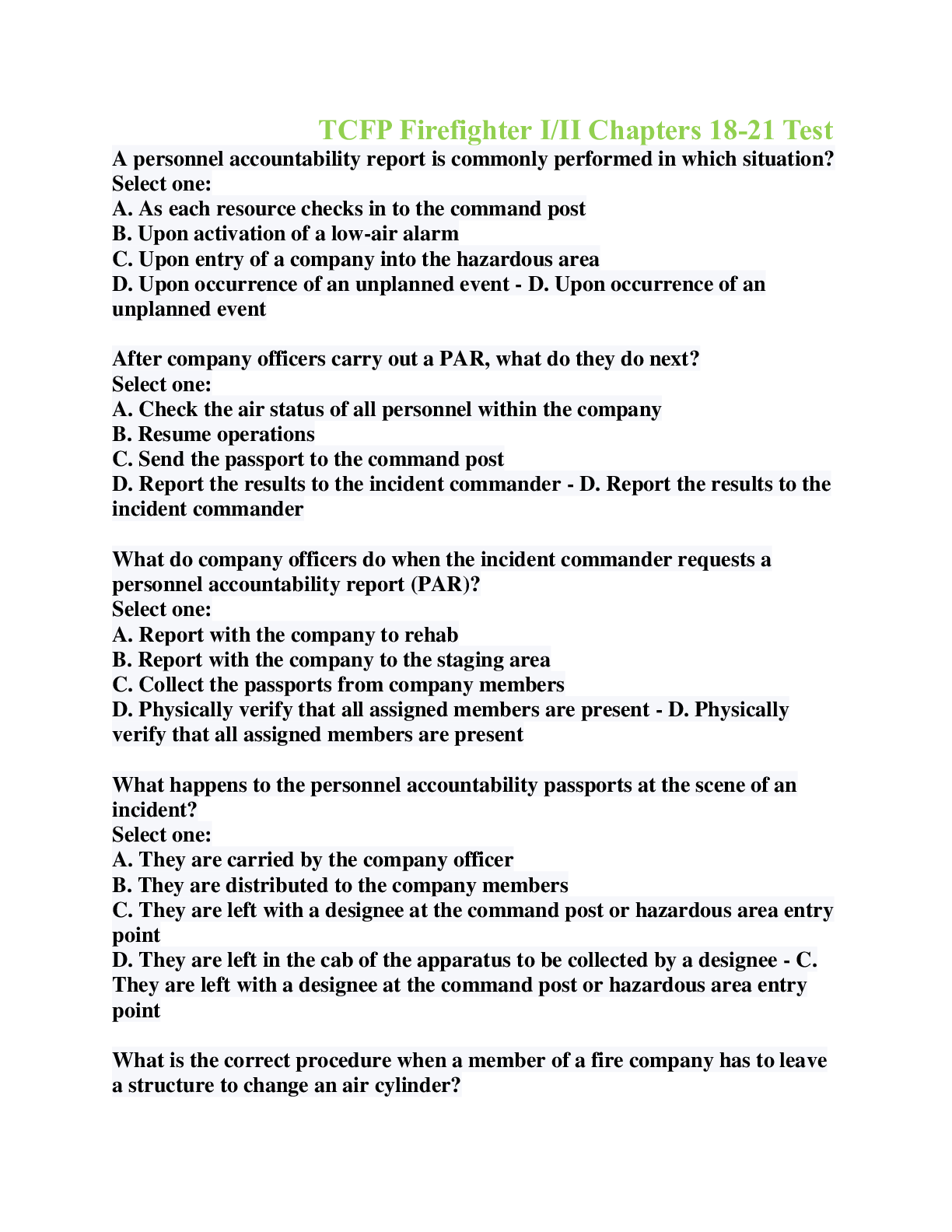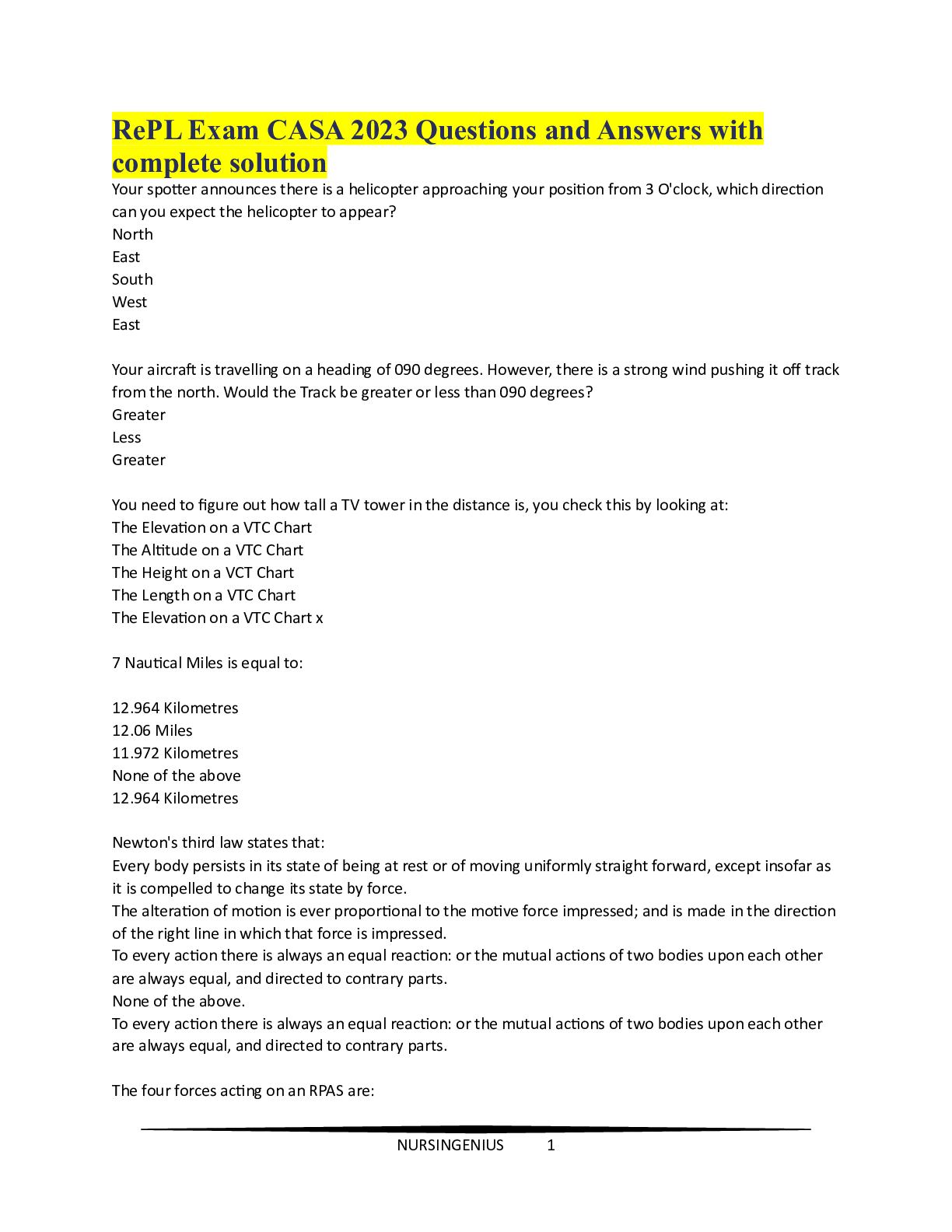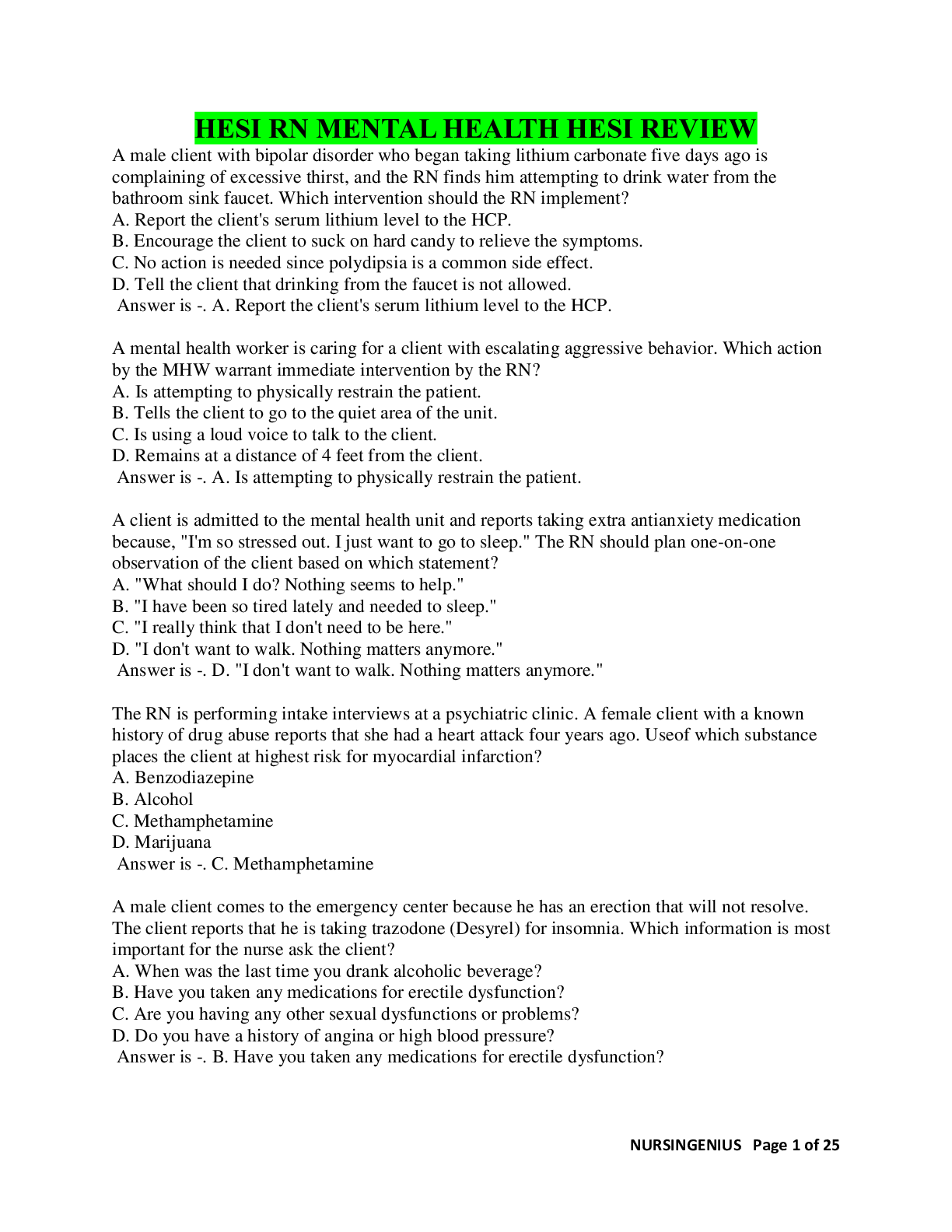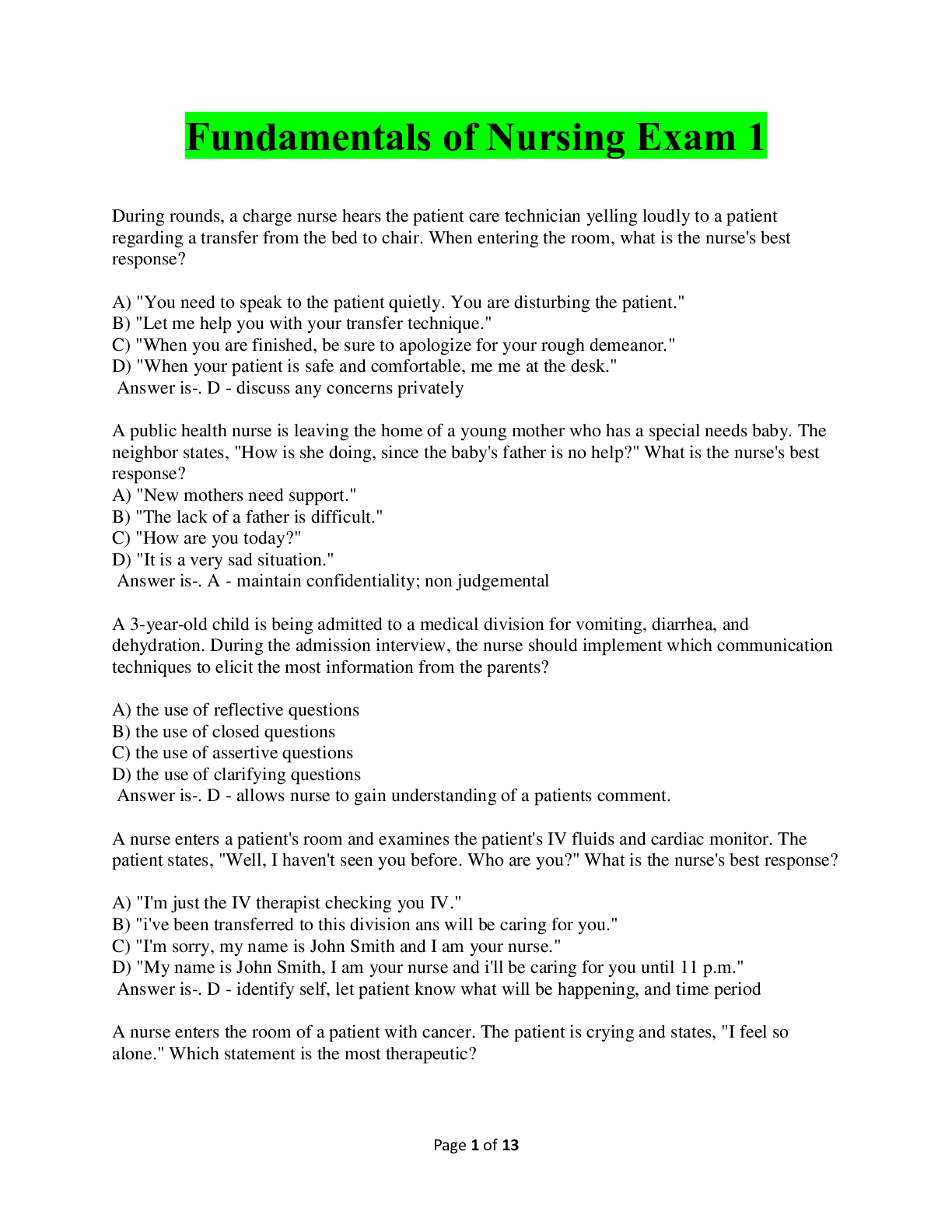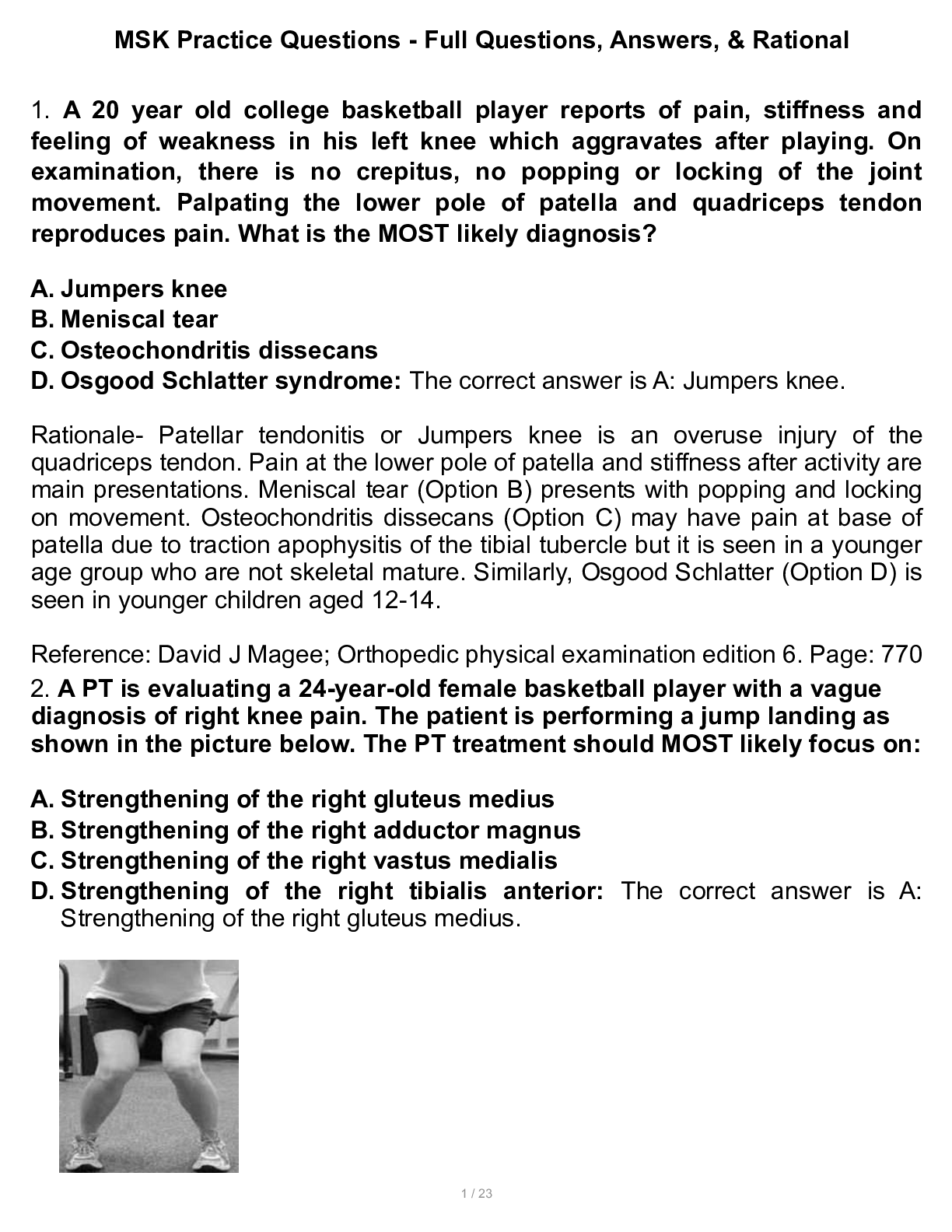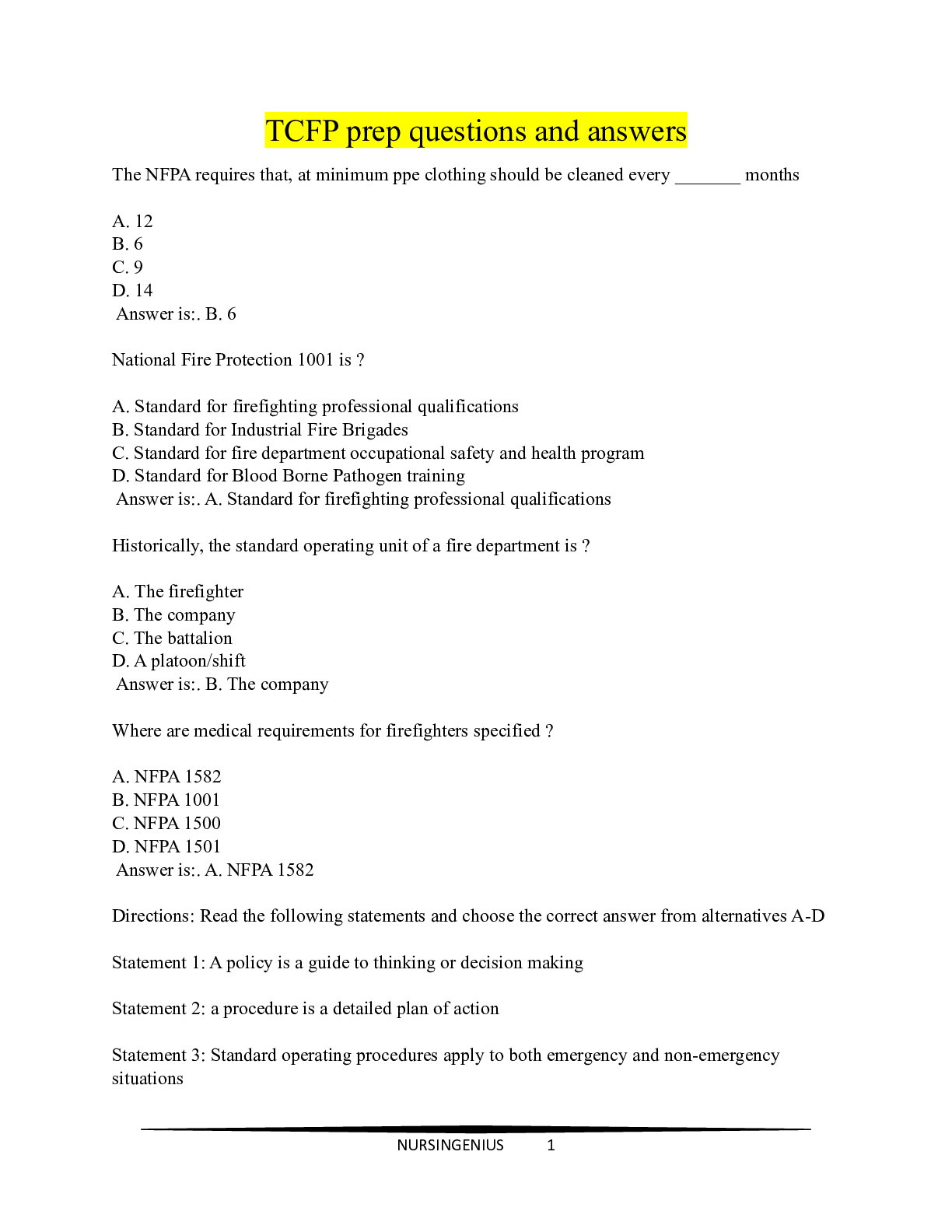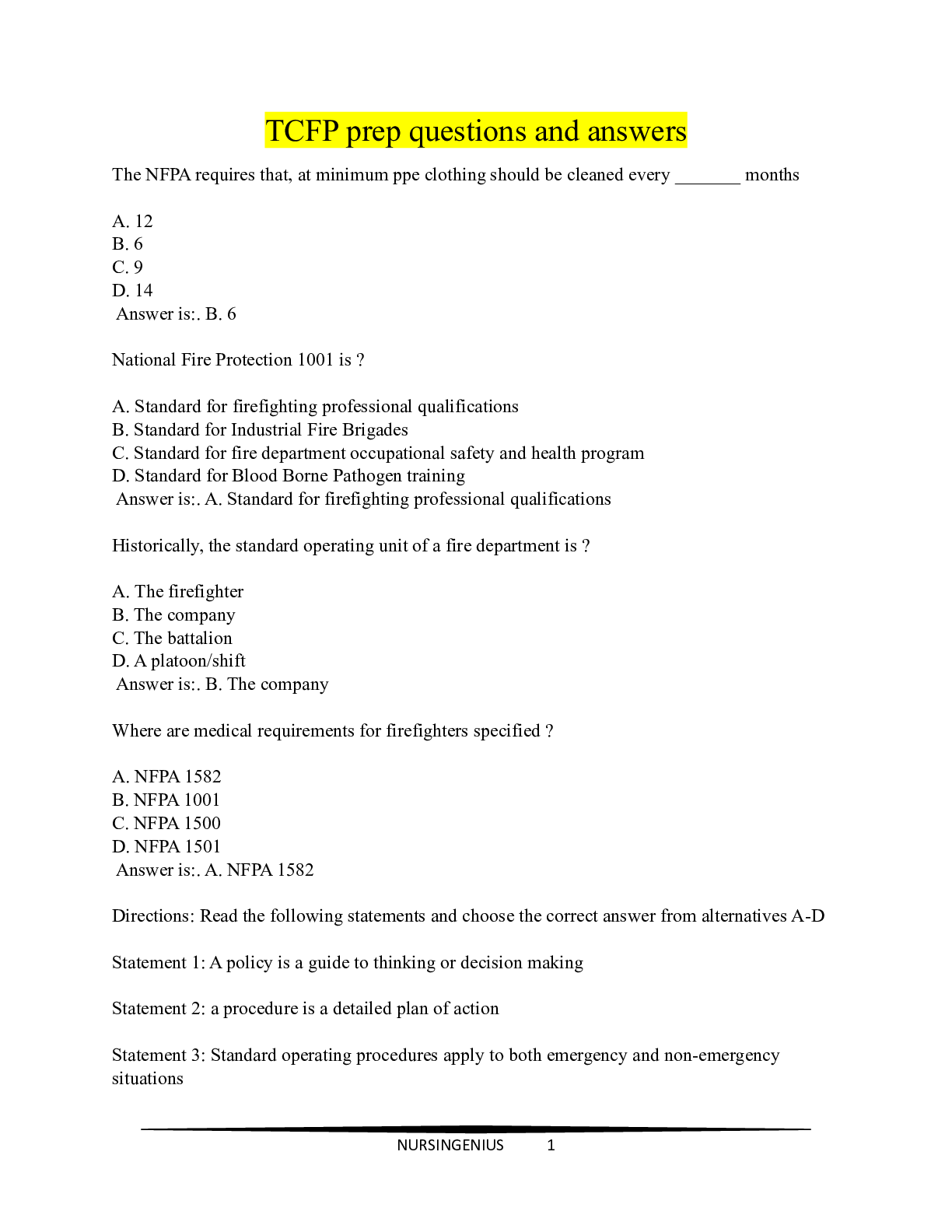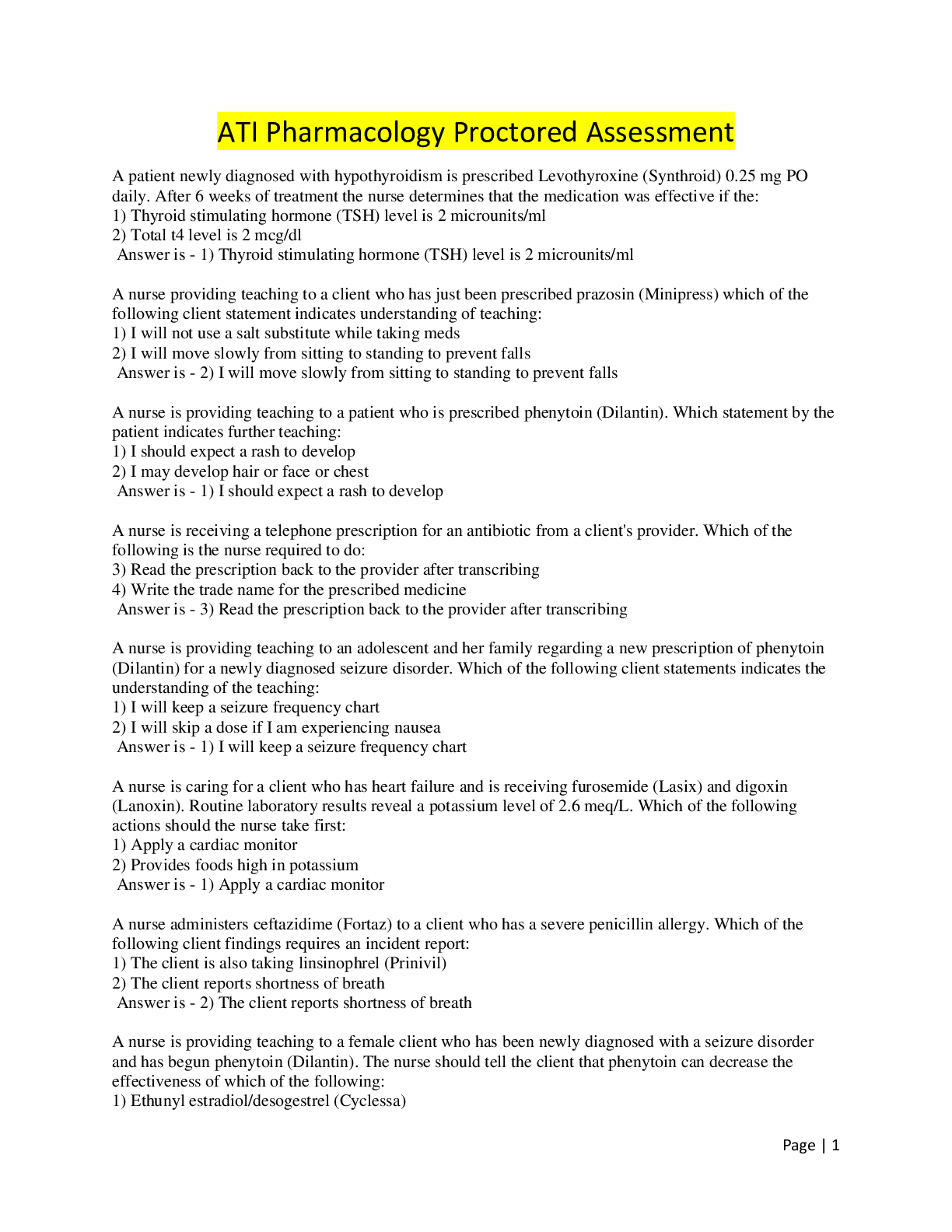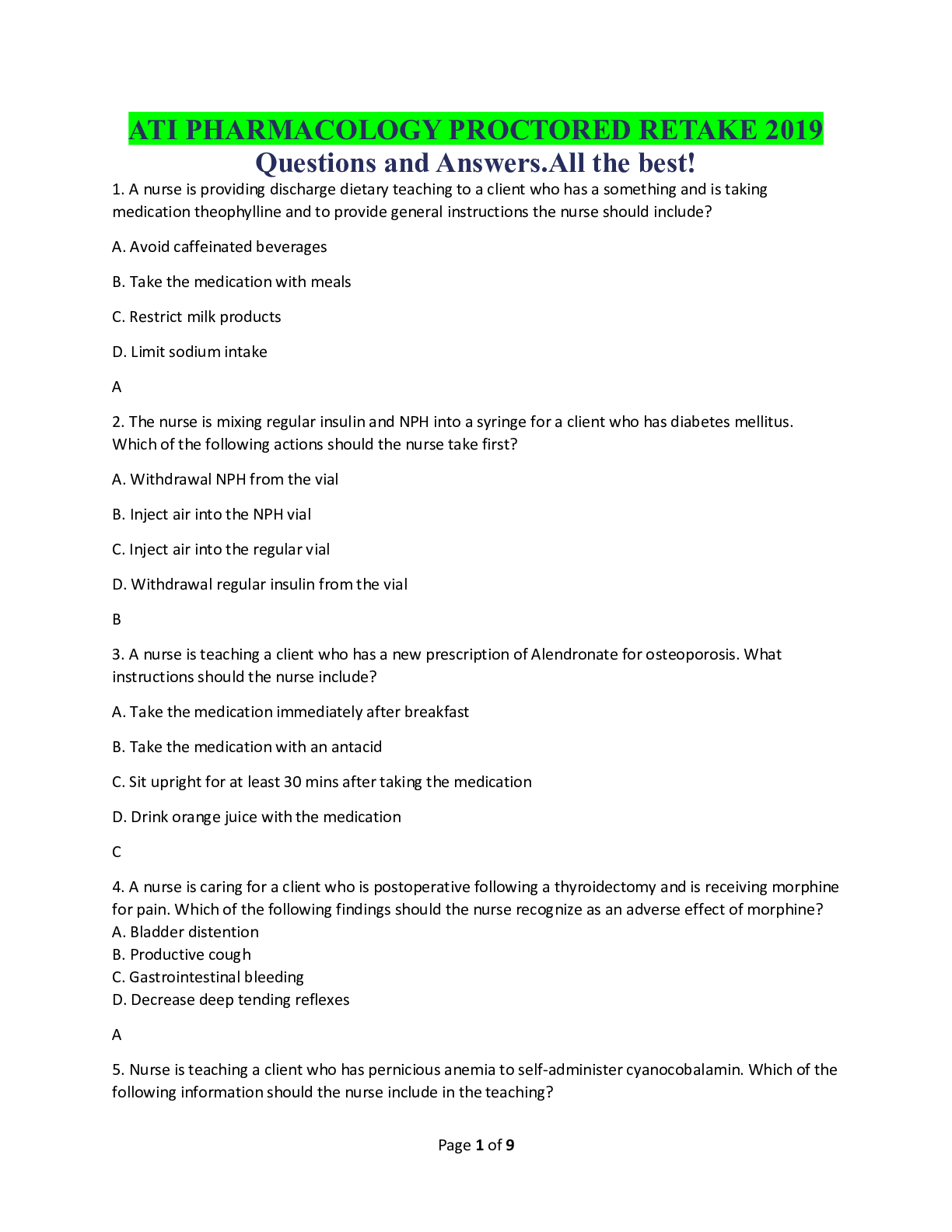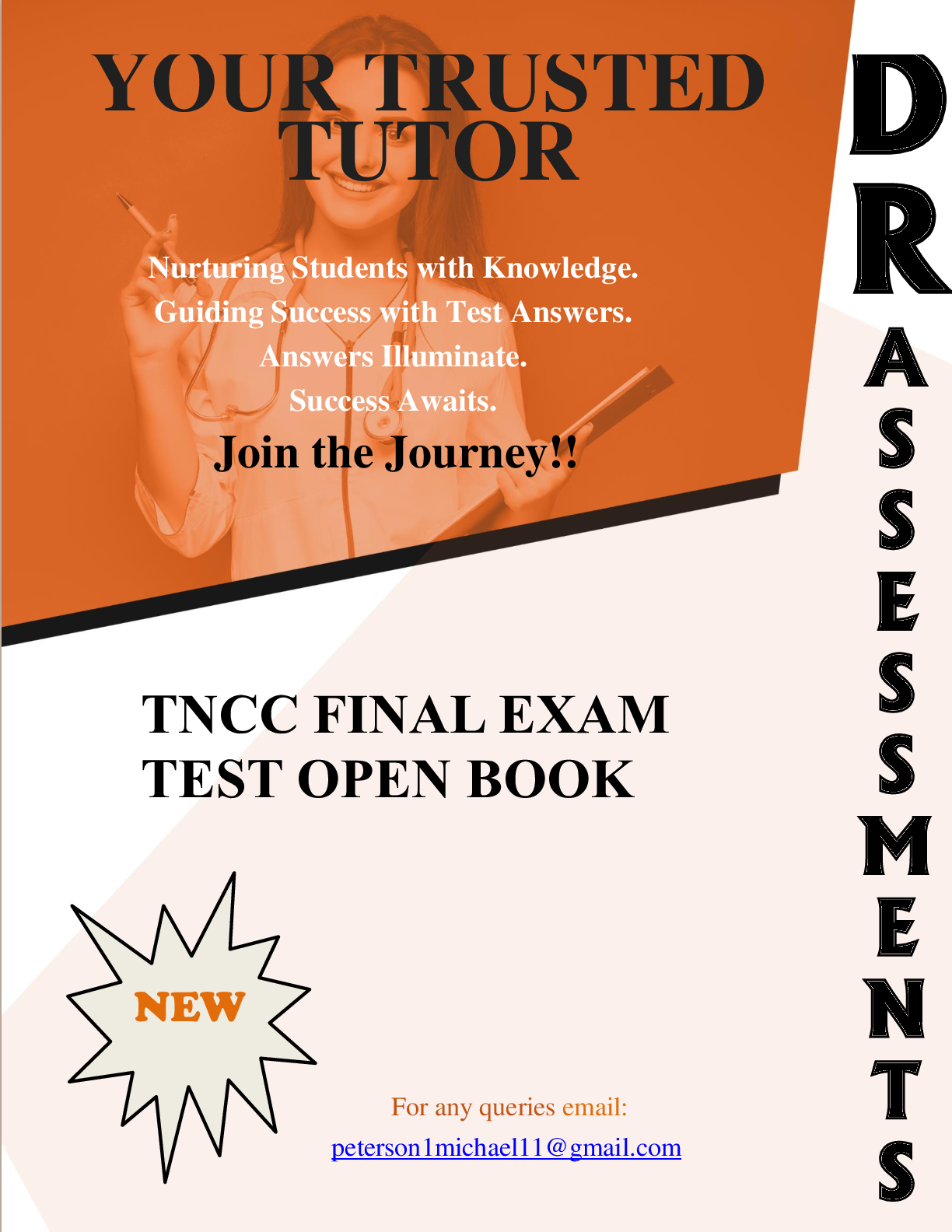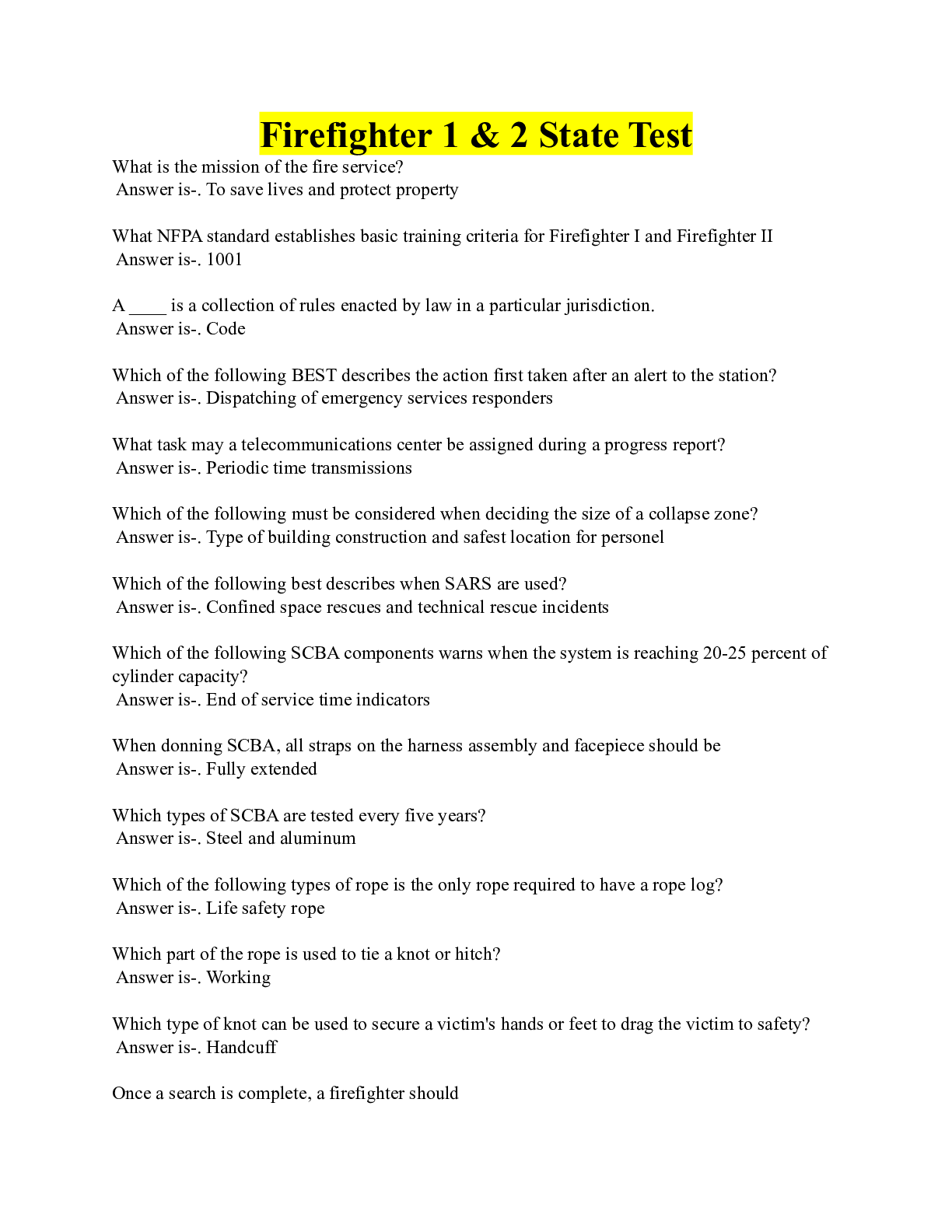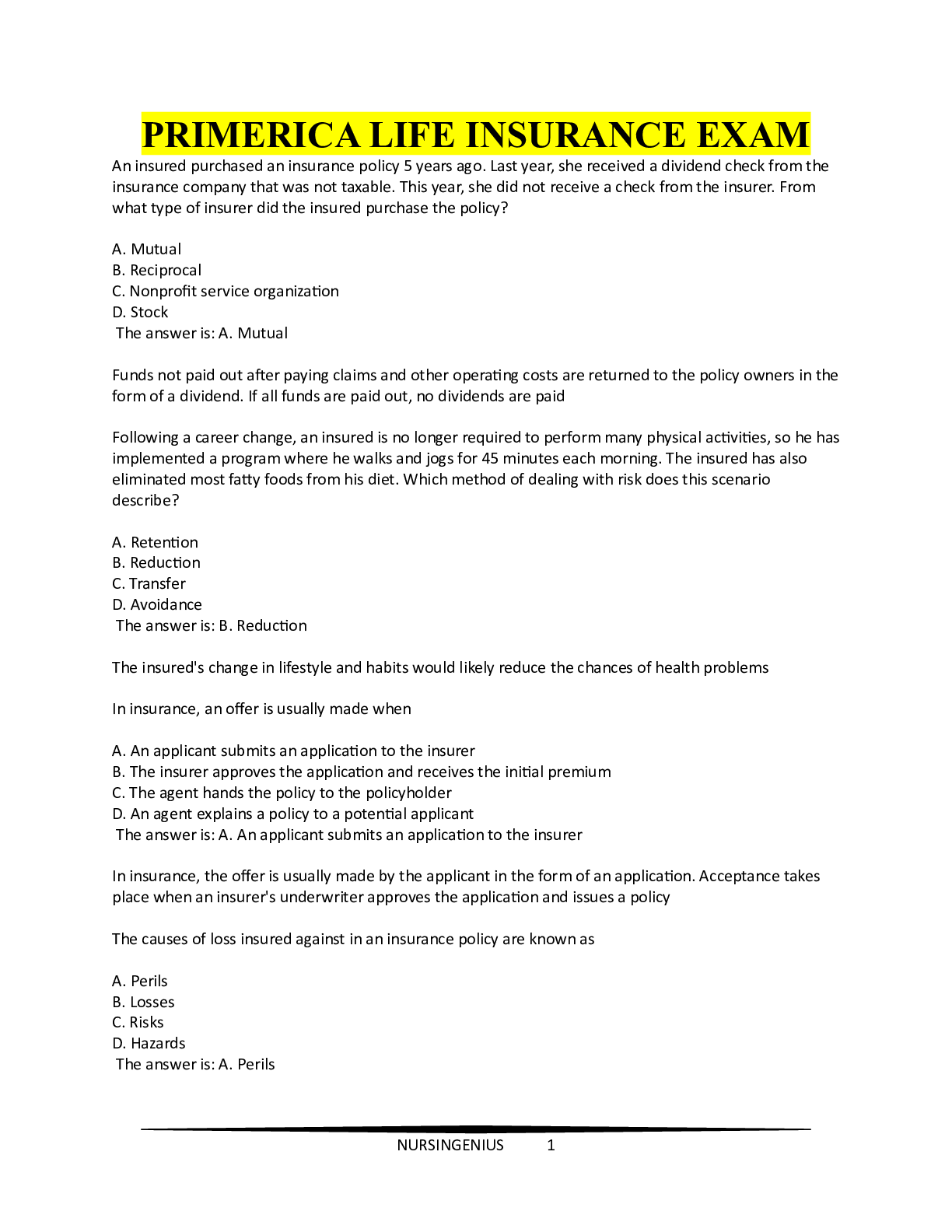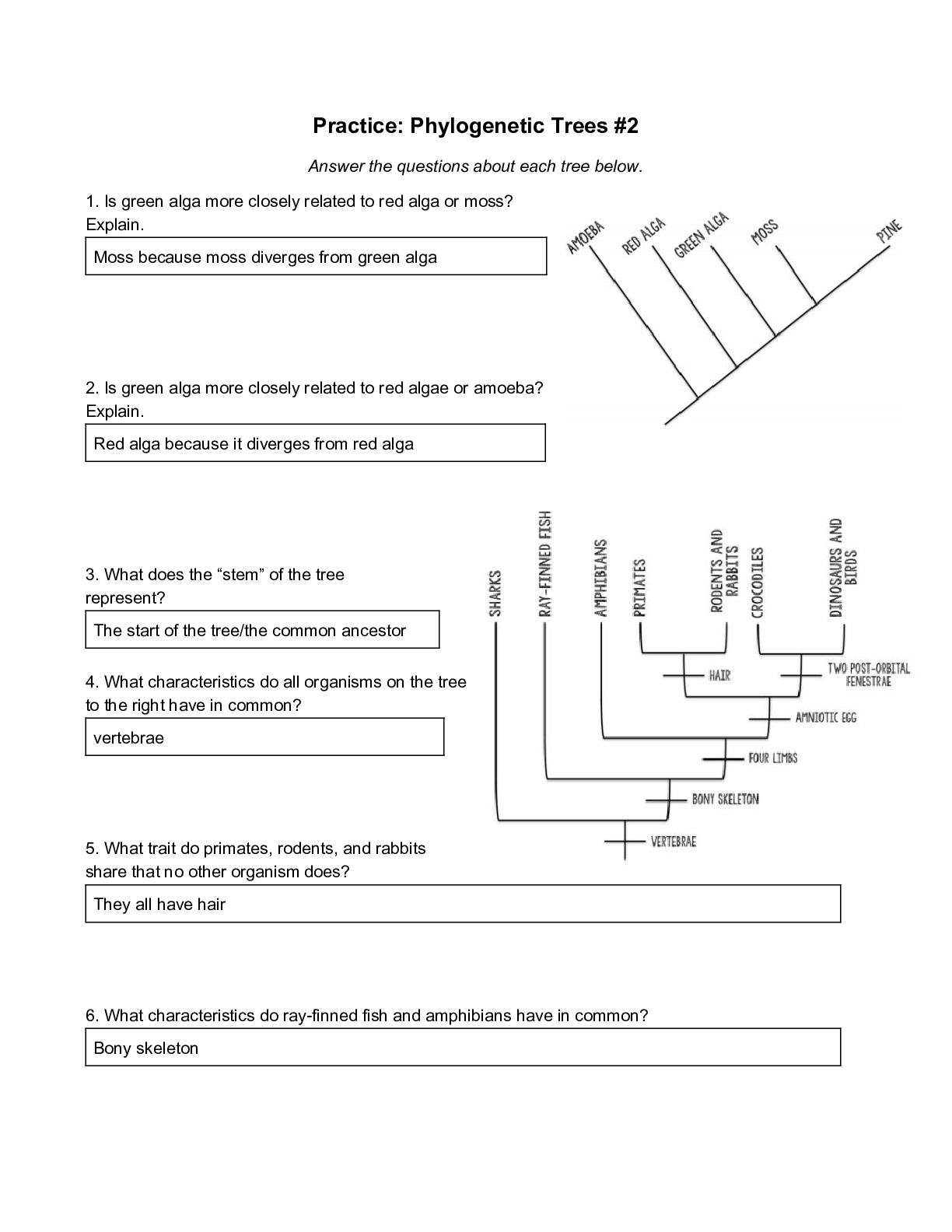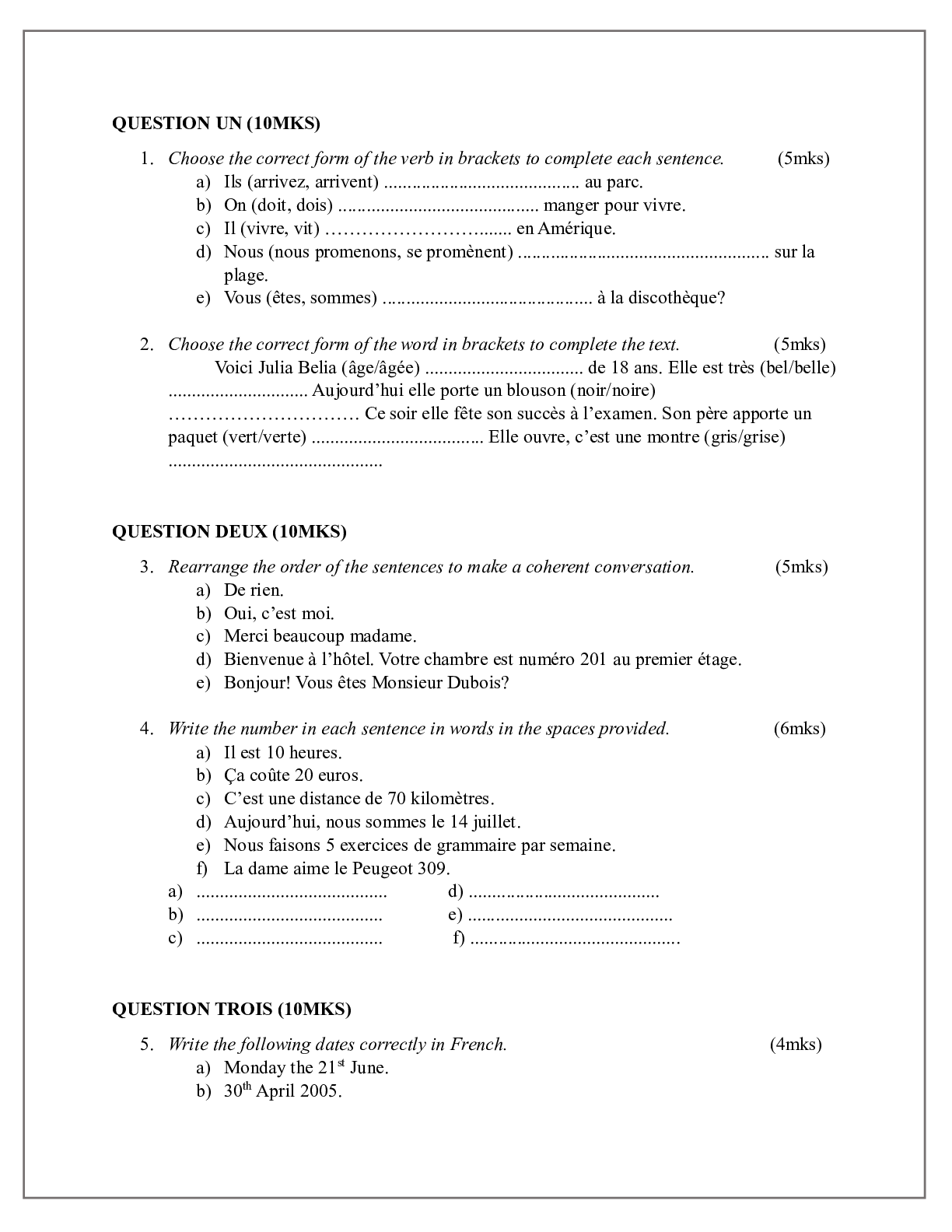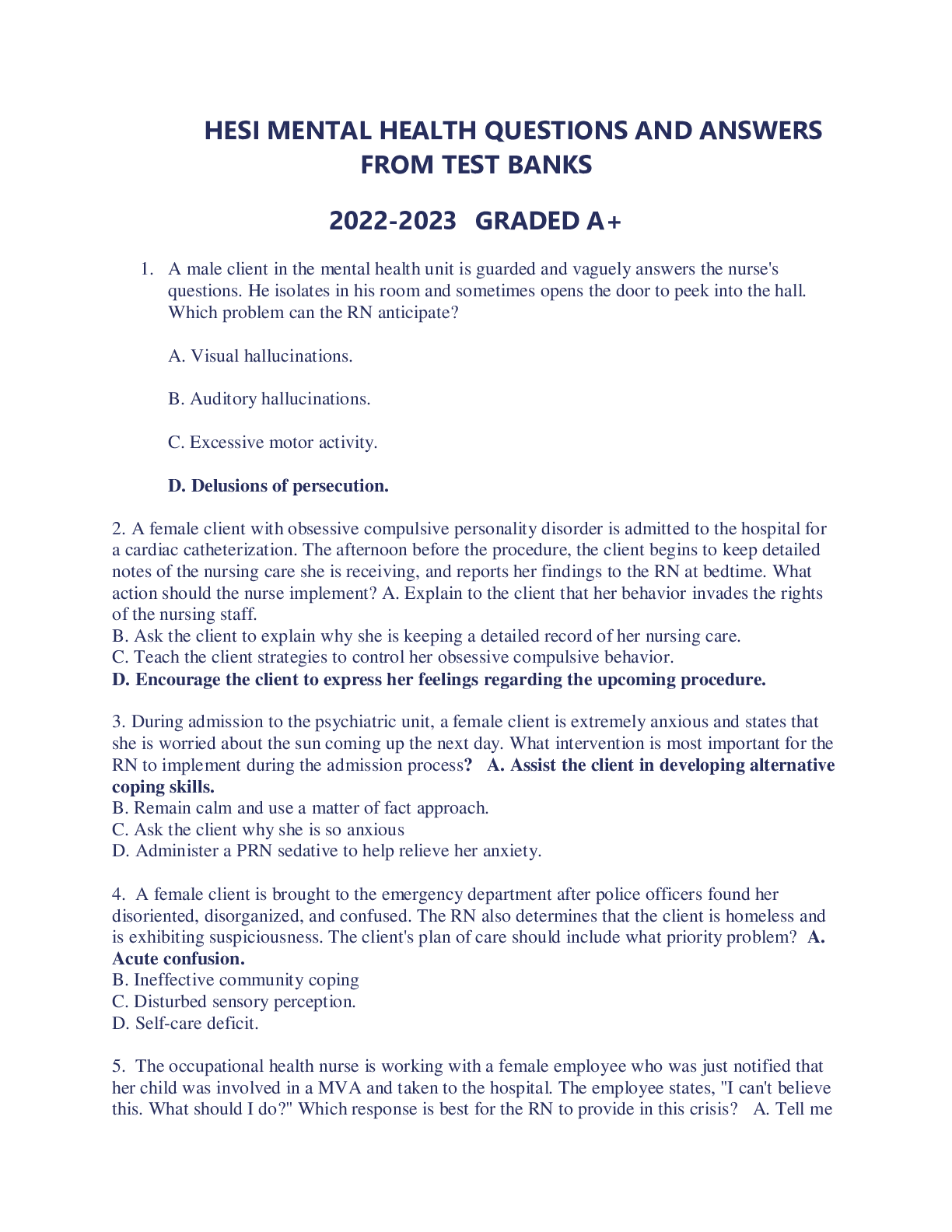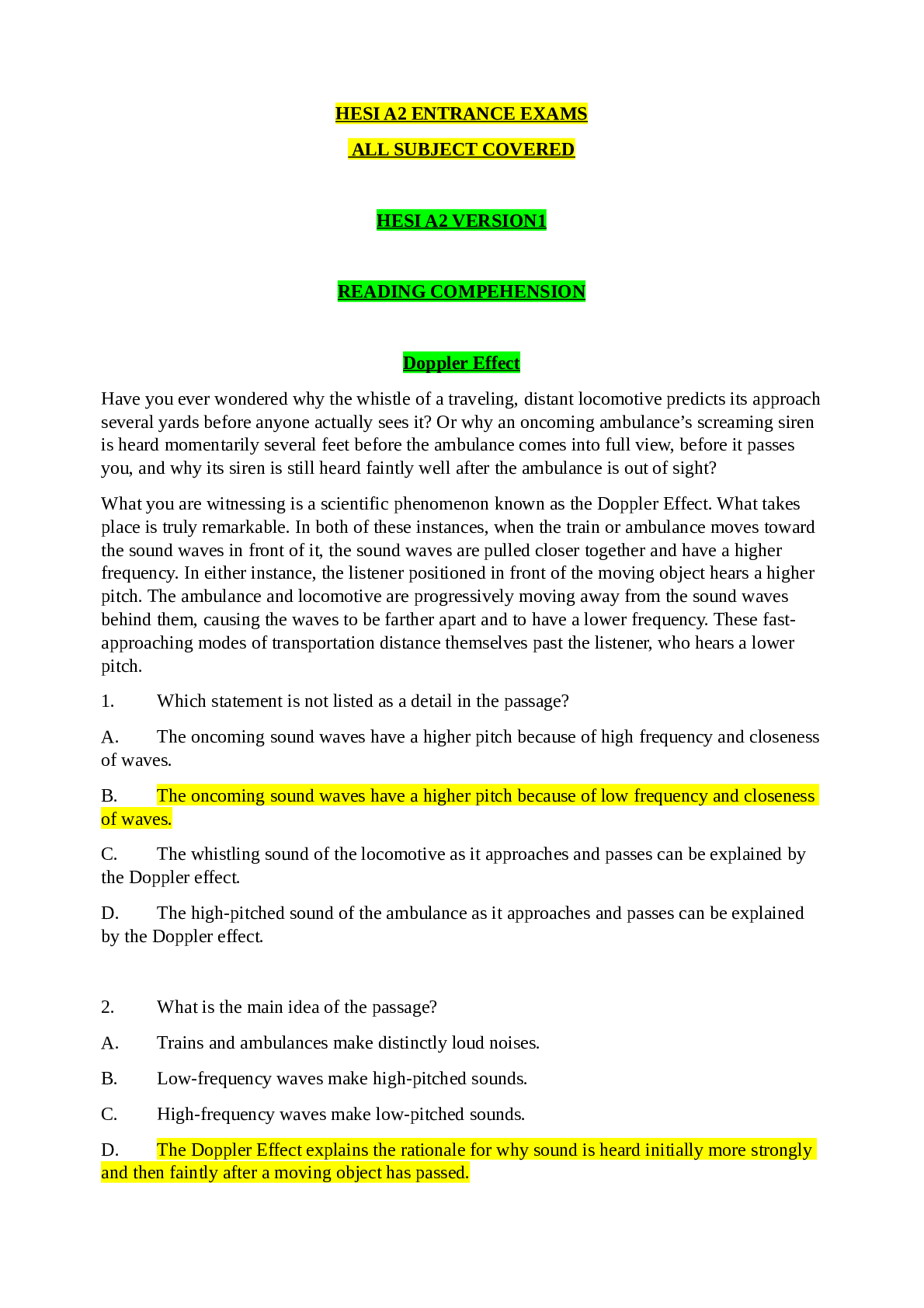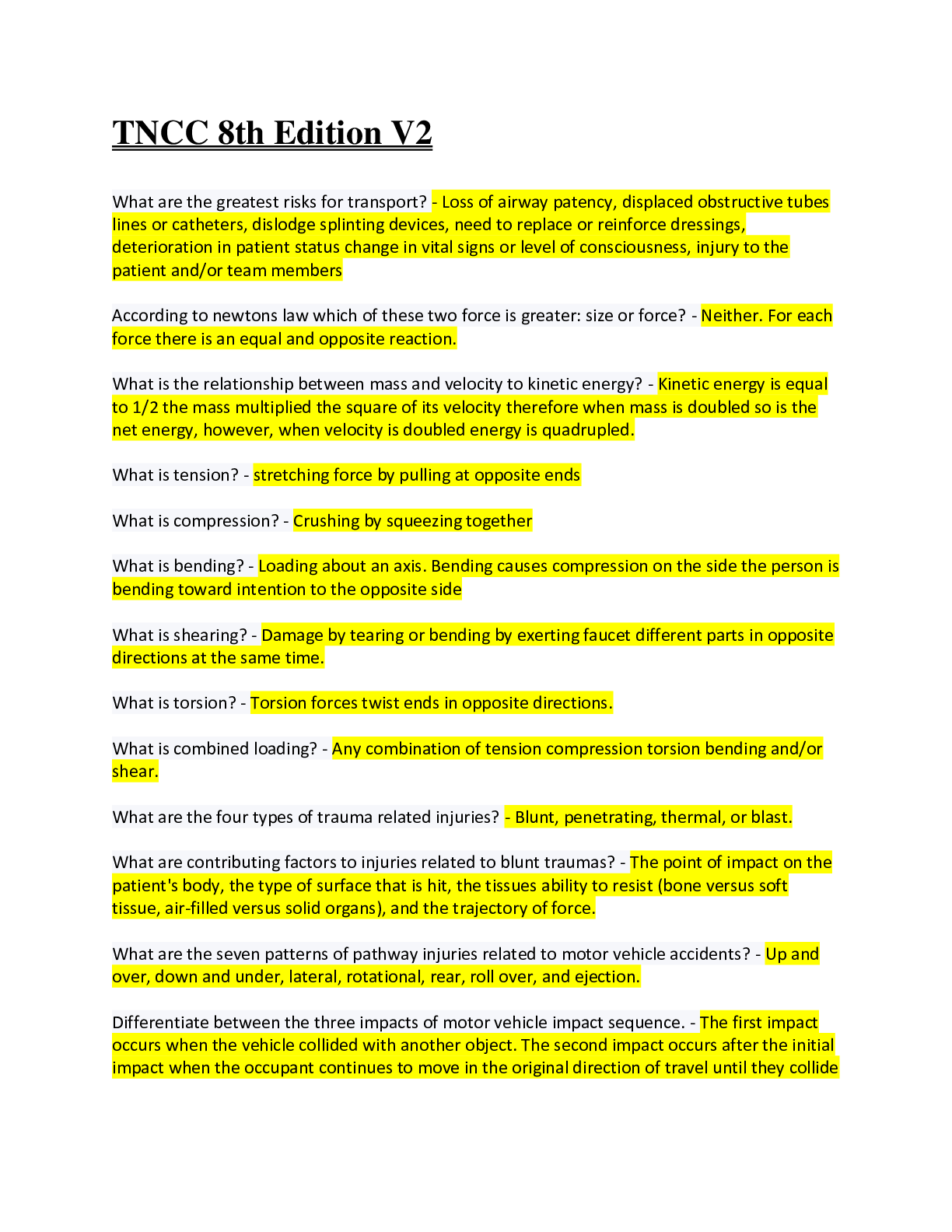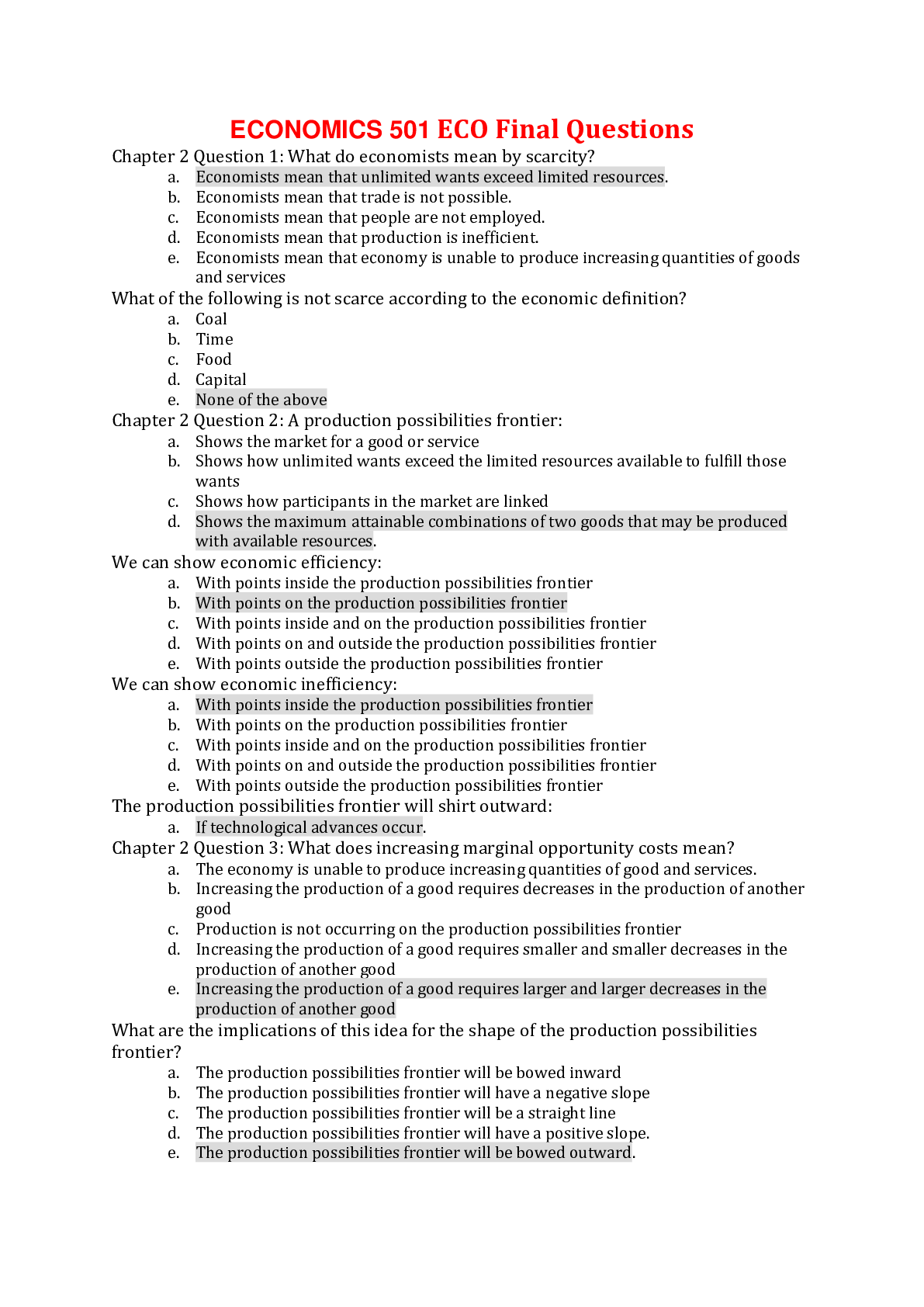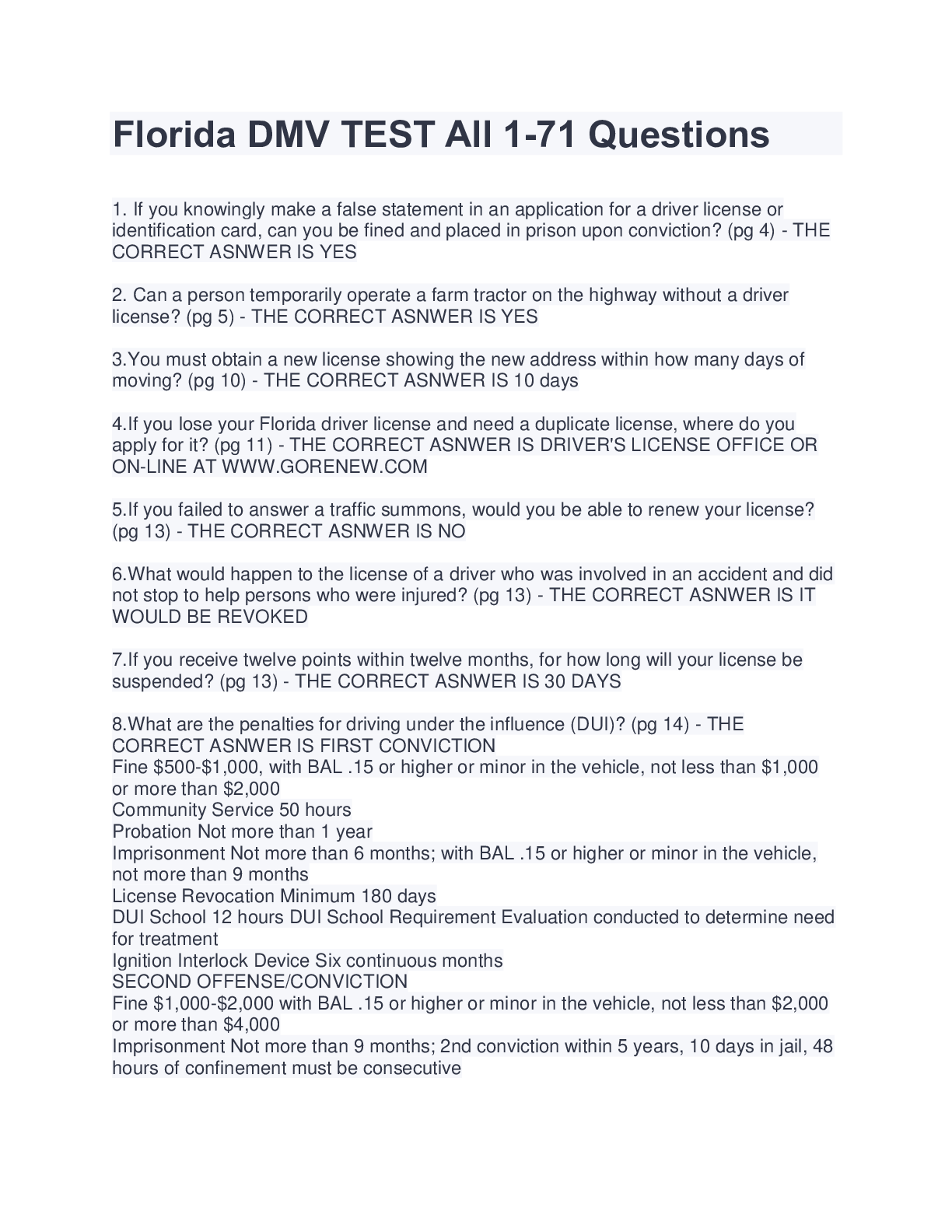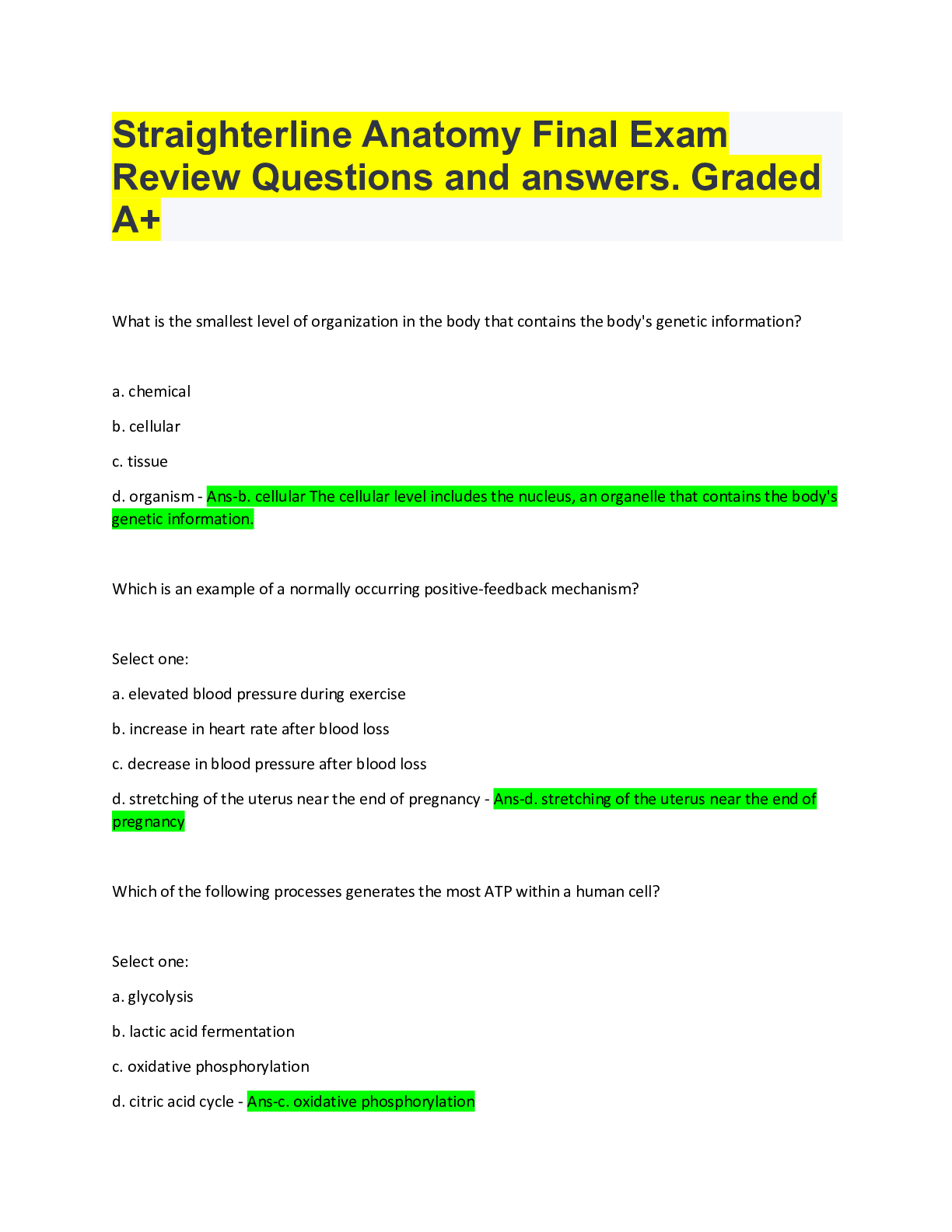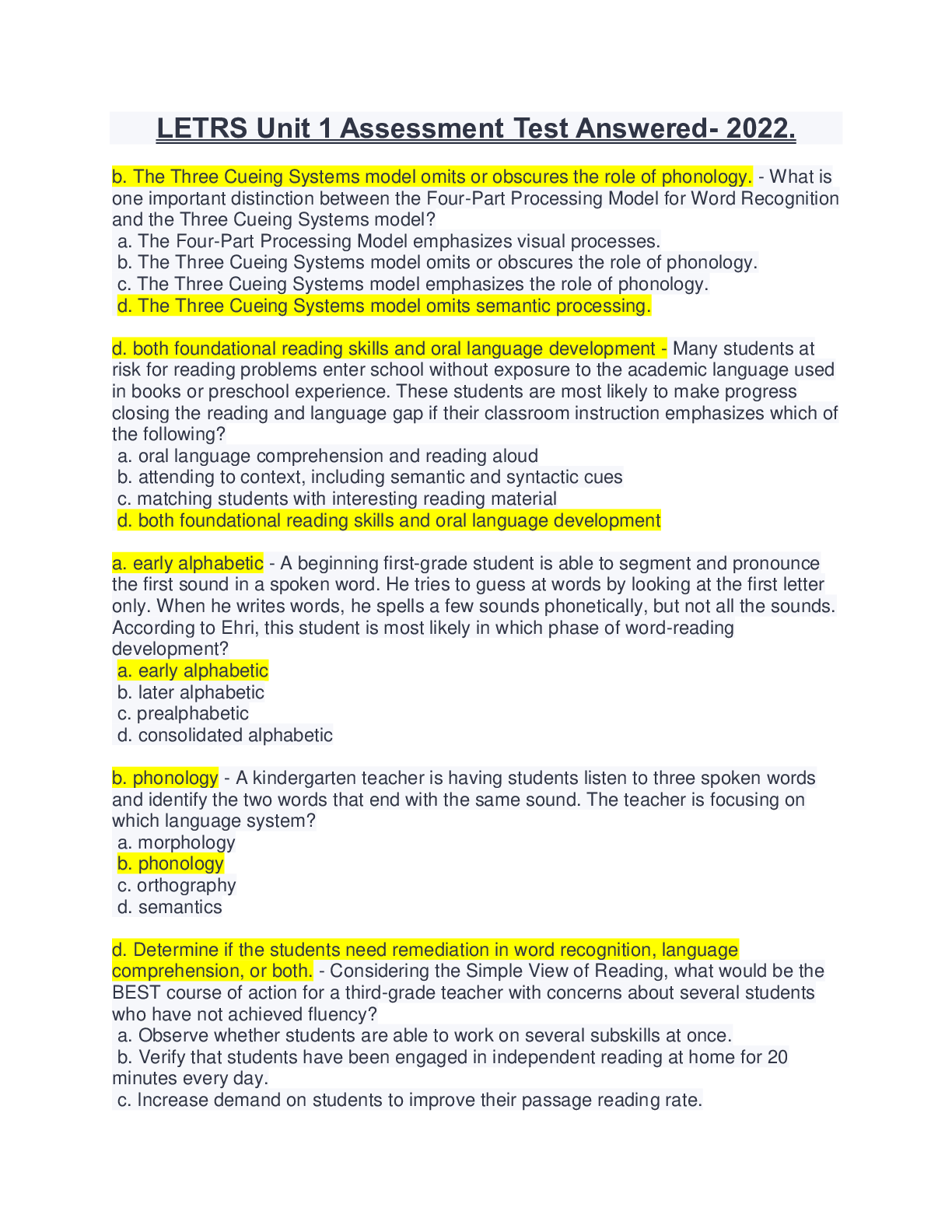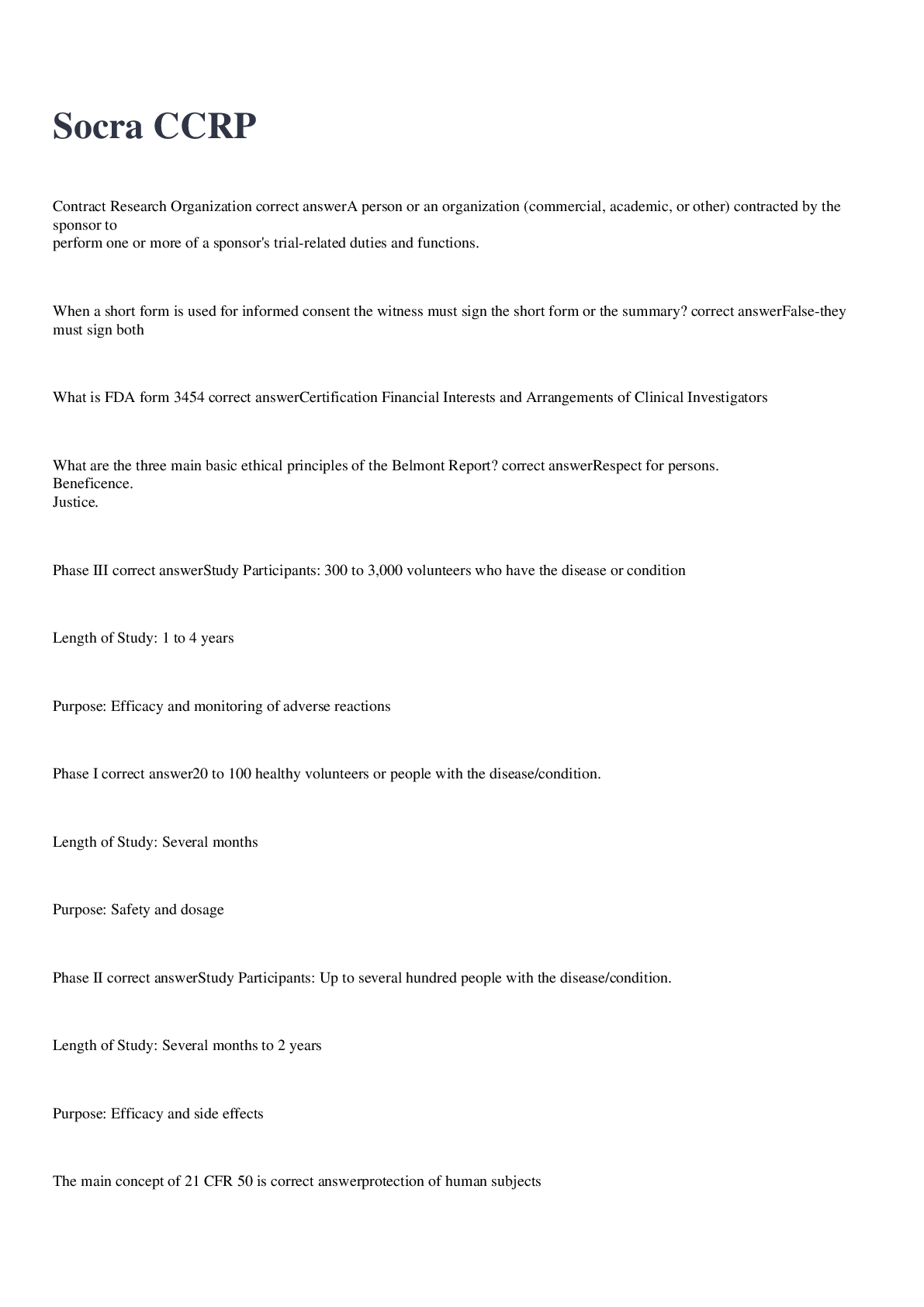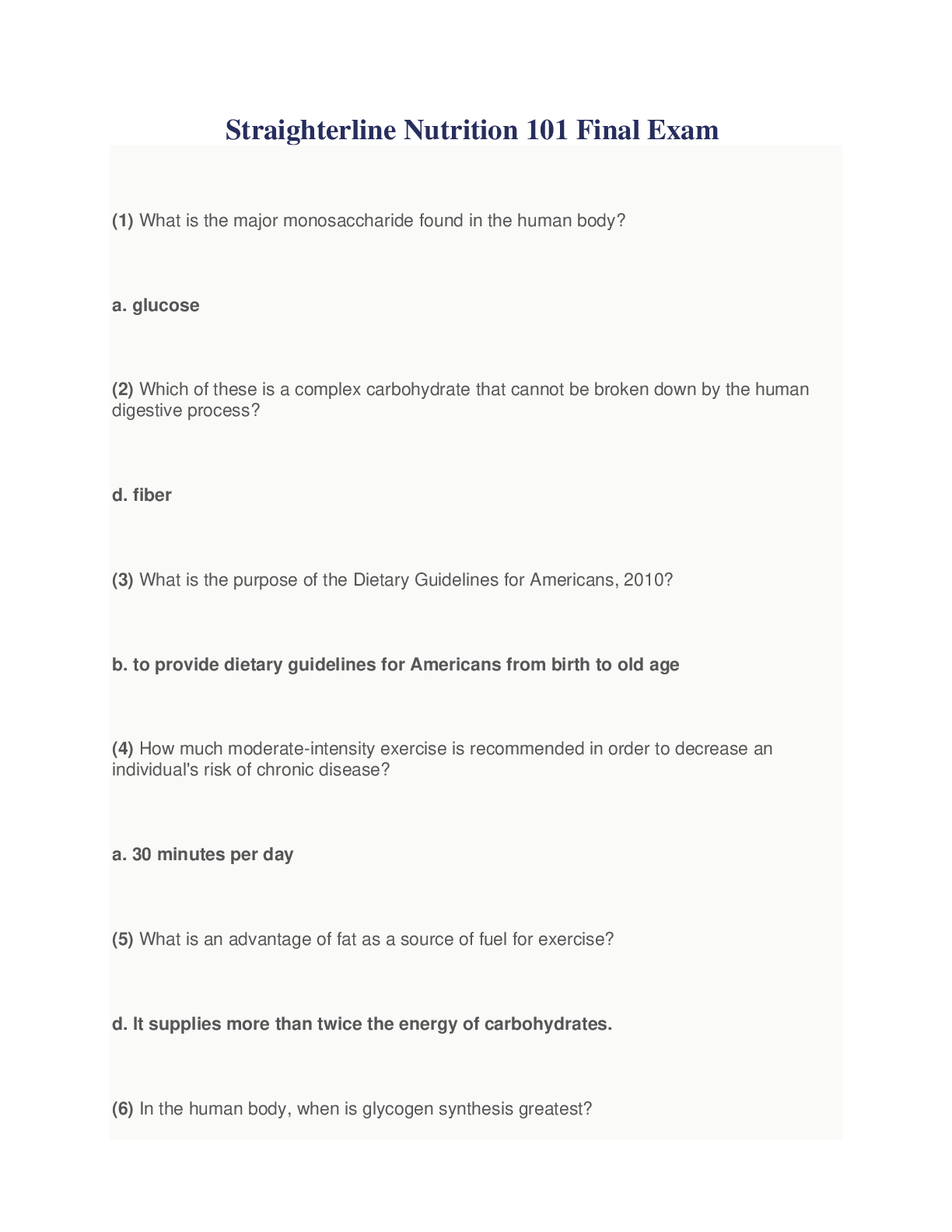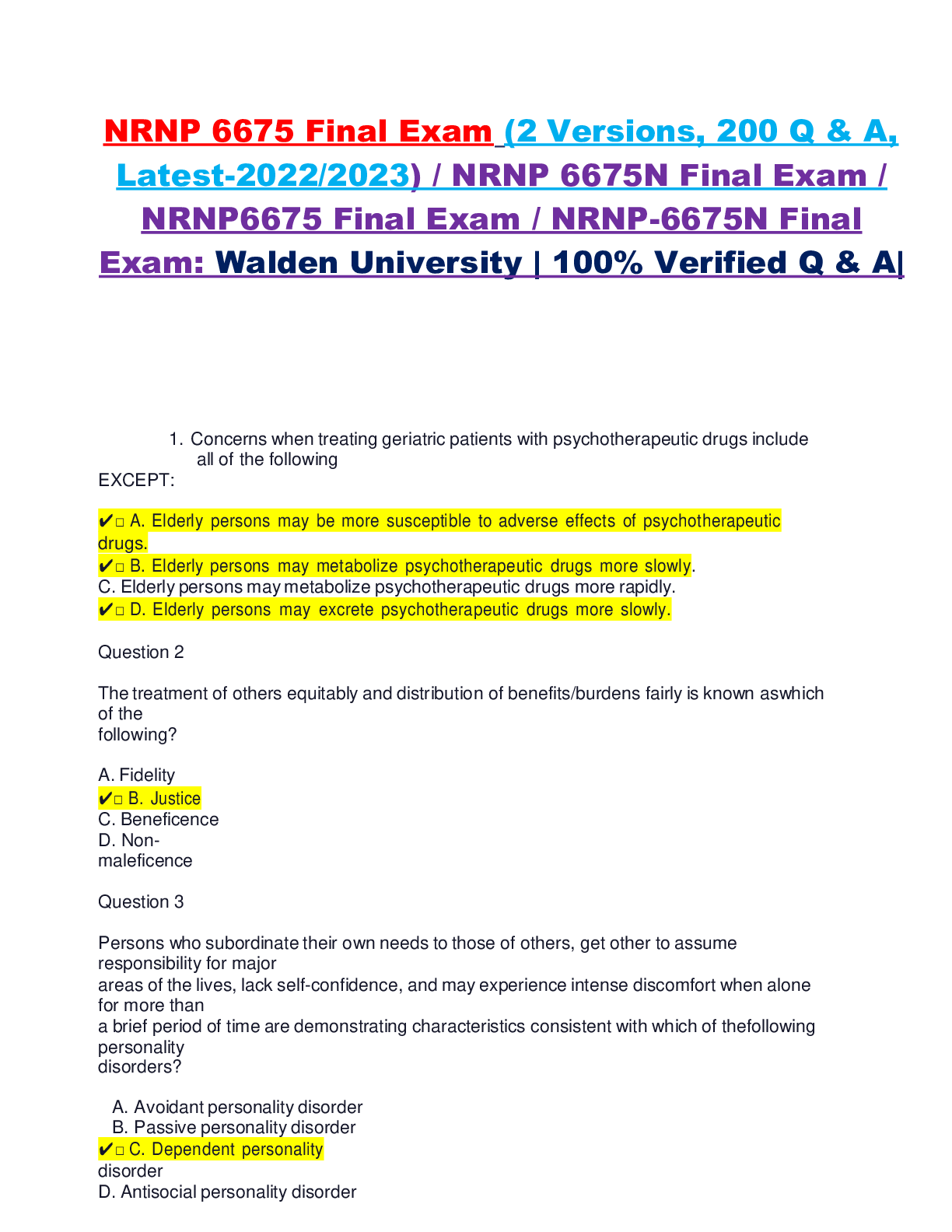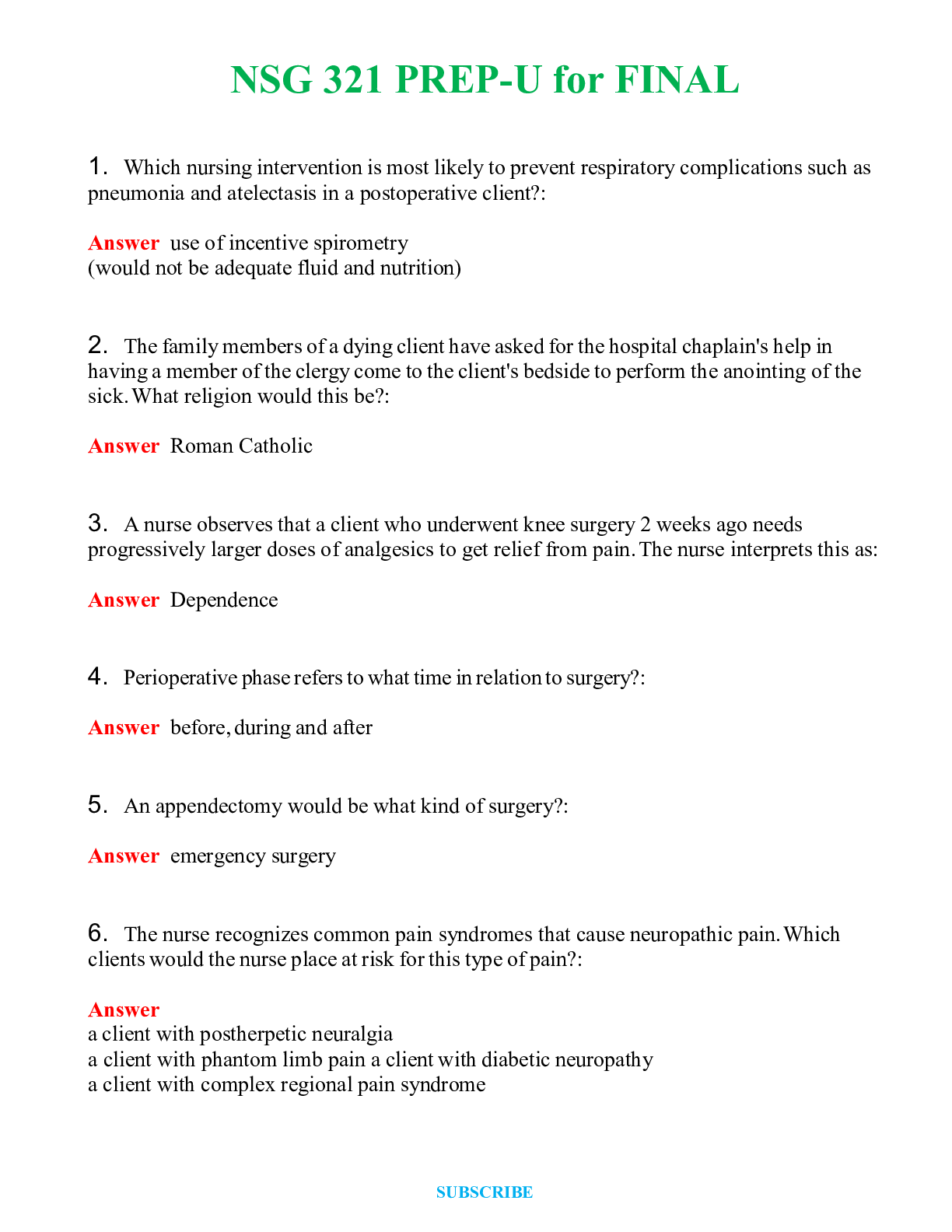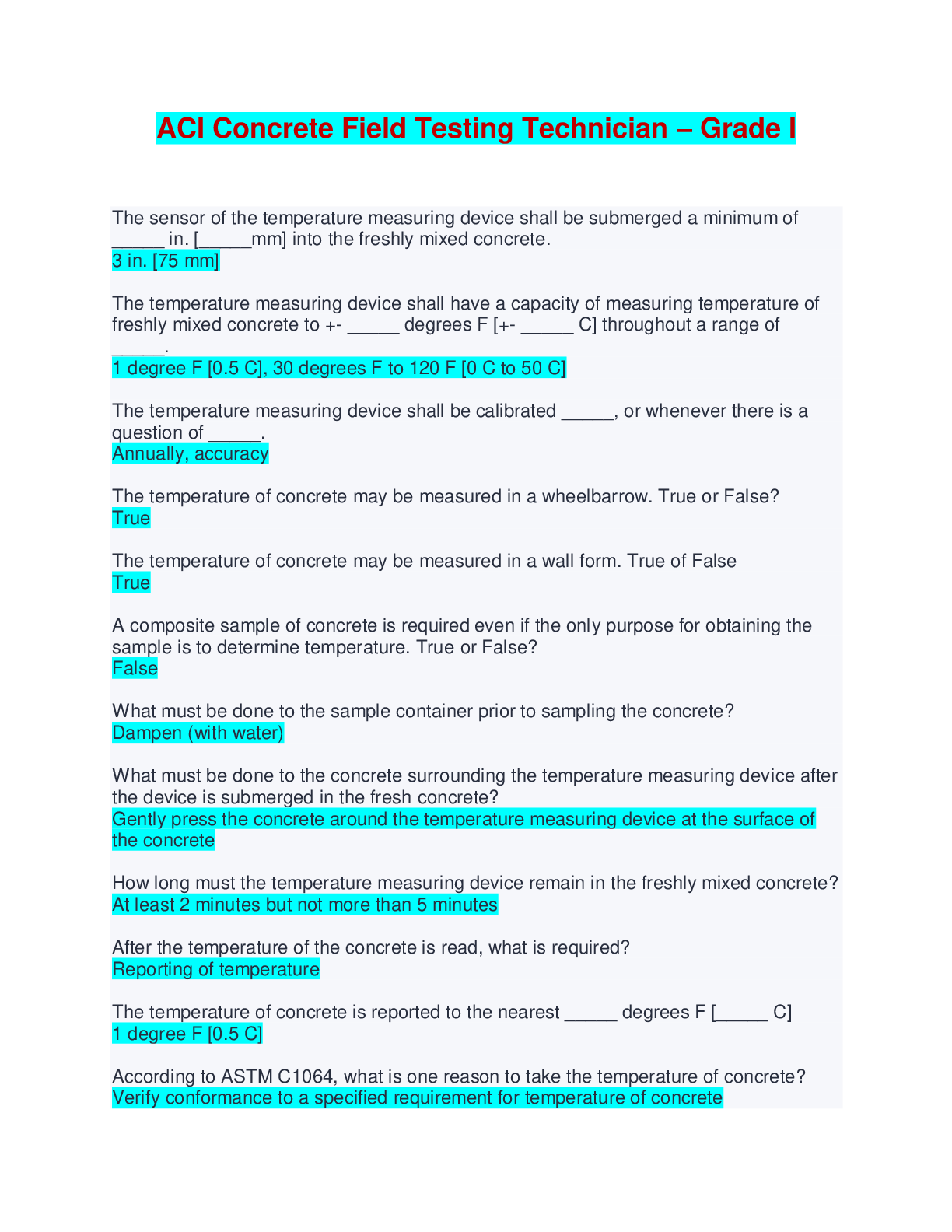PALS FINAL EXAM (NEW) ALL QUESTIONS AND ANSWERS⭐⭐⭐⭐⭐
Document Content and Description Below
1. A 12-year-old child being evaluated in the pediatric intensive care unit displays the following ECG waveform. The team interprets this as which arrhythmia?: second degree 2. Laboratory tests are o... rdered for a child who has been vomiting for 3 days and is diaphoretic, tachypneic, lethargic and pale. Which test would the provider use to determine the adequacy of oxygen delivery?: Lactate 3. A 9-year-old patient is presenting with decreased breath sounds, bradycardia, slowed respiratory rate and a low O2 saturation level. The provider interprets these findings as indicating which condition?: Respiratory failure 4. A 4-year-old child is brought to the emergency department by the parents. Assessment reveals that the child has only gasping respirations and the pulse rate is 65 beats per minute. Which action would the provider initiate first?: Deliver 1 BVM ventilation every 3 to 5 seconds. 5. A 15-year-old patient is being evaluated during a follow-up visit after being diagnosed with Lyme disease 2 months ago. A rhythm strip is obtained as shown below. The provider interprets this rhythm as indicating which arrhythmia?: First-degree atrioventricular (AV) block 6. A child in cardiac arrest experiences return of spontaneous circulation but is exhibiting signs of post-cardiac arrest syndrome (PCAS). The PALS resuscitation team determines that the child is experiencing a systemic response to ischemia/reperfusion. The team bases this determination on which finding(s)?: Hypotension Fever Hyperglycemia 7. A 2-year-old child arrives at the emergency department with the parents. The child is unresponsive, is not breathing and has no pulse. Two emergency department providers begin high-quality CPR. Which action(s) by the providers demonstrates high-quality CPR?: Allowing the chest to recoil fully after each compression Providing ventilations that last about 1 second each Compressing the chest about 2 inches Giving 2 ventilations to every 15 compressions 8. A PALS resuscitation team is preparing to defibrillate a child experiencing cardiac arrest. For which rhythm(s) would this action be appropriate?: VF and pVT are shockable cardiac arrest rhythms. 9. A provider is assessing a child with suspected shock. Which statement correctly describes hypotension and shock?: Hypotension is not a consistent feature of shock; 10. A provider is caring for a 4-year-old child in the urgent care clinic. Primary assessment reveals difficulty breathing and an oxygen saturation of 91%. The provider administers oxygen by nasal cannula with the goal of improving the child's oxygen saturation above what percentage?: Supplemental oxygen should be administered as needed to maintain an oxygen saturation above 94%. 11. An 11-year-old soccer player is brought to the emergency department. After a quick assessment, the team realizes this patient is experiencing a severe asthma exacerbation. Which medication would the team administer first?: Albuterol plus ipratropium bromid 12. A child in the pediatric step-down unit is exhibiting signs of respiratory distress. When assessing this child, which circulation finding might be present?: Pallor is a circulation finding that may be seen in patients with respiratory distress. 13. A healthcare provider is performing a primary assessment of a child in respiratory distress. The provider documents increased work of breathing when which findings are observed?: Nasal flaring, use of accessory muscles to breathe and intercostal, substernal or suprasternal retractions are all indicators of increased work or effort of breathing. Grunting and inspiratory stridor are abnormal breath sounds. 14. An 11-year-old child develops unstable wide-complex tachycardia. Assessment reveals signs of significant hemodynamic compromise, but the child has a pulse. The PALS team would prepare the child for which intervention?: First-line treatment for unstable wide-complex tachycardias consists of synchronized electrical cardioversion, particularly when signs of hemodynamic compromise are apparent. [Show More]
Last updated: 10 months ago
Preview 1 out of 7 pages

Reviews( 0 )
Document information
Connected school, study & course
About the document
Uploaded On
Jul 02, 2023
Number of pages
7
Written in
Additional information
This document has been written for:
Uploaded
Jul 02, 2023
Downloads
0
Views
53


